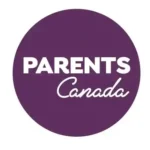Uncategorized
3 min Read
Is Montessori School right for your child?

January 31, 2018
Uncategorized
3 min Read

January 31, 2018

Have you ever considered sending your child to a Montessori school, but you’re just not sure what they have to offer? Here’s what you need to know.
The “Montessori” method, founded in 1907, is an educational approach developed by Italian physician and educator Maria Montessori. Based on her extensive research with “special needs” children, Montessori’s method is designed to teach children with an emphasis on independence, freedom within limits, and a respect for a child’s natural psychological, physical, and social development.
Montessori caught the eye of Alexander Graham Bell, who opened Canada’s first Montessori school in Baddeck, N.S., in 1912, long before it became popular in the 1960s.
At a Montessori school the teacher observes children, then uses certain resources in the classroom to present lessons to kids who are ready to learn. Lessons are given in sequence; children don’t move on to the next lesson until they have mastered the previous one. Once individual students are given a lesson, they can move freely around the classroom, working with classroom materials or on follow-up projects.
Preschool and kindergarten: Classrooms in a Montessori school for children from 3 to 6 years old are often called Children’s Houses, after her first Montessori school, the Casa dei Bambini in Rome in 1906. This level is also called “Primary”. The teacher usually presents activities; then the children depending on their interests may choose which skills they want to focus on. In early childhood, Montessori students learn through sensory-motor activities, working with materials to develop learning through all five senses: seeing, hearing, tasting, smelling, touching, and movement.
Elementary: Classrooms for this age are usually referred to as “Elementary”, and can range in size from very small up to 30 or more children, typically staffed by a trained teacher and one or more assistants. In the elementary years, a child continues to organize thinking through work with the Montessori method; essentially beginning the application of knowledge to real-world experiences. Classroom materials and lessons include work in language, mathematics, history, the sciences, the arts, and much more. Montessori students learn to think critically, work collaboratively, and act boldly—a skill ideal for life in the 21st century.
No matter which grade level your child belongs to, it is collectively known that all kinds of learning styles will be cultivated at Montessori school including: musical, bodily-kinaesthetic, spatial, interpersonal, intrapersonal, intuitive, and the traditional linguistic and logical-mathematical (reading, writing, and math).
Parents, it’s important to carefully research, and observe a classroom in person, in order to choose a Montessori school best suited for your child.
Find a Montessori school for your child with ParentsCanada’s Private School Guide.